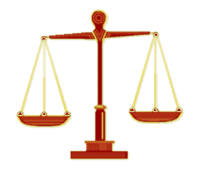Repeal facts for kids
A repeal is when a law is officially taken away or canceled. Think of it like pressing the "undo" button on a rule. Sometimes a law is repealed and a new, updated law takes its place. Other times, a law is just removed completely without anything replacing it.
In places like the United Kingdom and Ireland, if a smaller rule (called 'secondary legislation') is removed, they usually say it's "revoked" instead of "repealed." In old English law, when a law was repealed, it was like it never existed! But now, there are rules that make sure some parts of the old law can still be useful.
Contents
Types of Repeals
Partial Repeal: Changing Part of a Law
A partial repeal happens when only a specific part of a law is removed, but the rest of the law stays in place.
For example, the Acts of Union 1800 were laws that joined Great Britain and Ireland into one country called the United Kingdom. In 1922, parts of these laws were repealed. This happened when most of Ireland became a new, independent country called the Irish Free State. So, the laws about the union were partly undone, but other parts of the original acts remained.
Full Repeal: Removing an Entire Law
A full repeal means that an entire law is completely taken away. Nothing from that law remains in effect.
Why Laws Are Repealed
Repeal and Re-enactment: Updating Laws
Sometimes, a law is repealed and then re-enacted. This means the old law is removed, but a new, updated version of it is put in its place. This often happens when laws need to be modernized. The new law might have some changes, or it might be exactly the same but written in a clearer way.
For instance, the old Poor Laws in England were repealed in 1948. They were replaced by new laws that created a modern system for social welfare, helping people in need.
Repeal Without Replacement: Removing Unwanted Laws
A repeal without replacement happens when a law is simply removed and nothing new takes its place. This usually occurs when a law is no longer useful, or if it's causing more problems than it solves. Many laws are repealed this way because society has changed a lot.
Here are some famous examples:
- The old Jim Crow laws in the United States were unfair rules that treated people differently based on their race. They were eventually repealed because they were wrong and harmful.
- The Corn Laws in England were rules about importing grain. They were repealed in 1846 after many people argued that they were bad for the country.
- In the United States, there was a time called Prohibition. During this time, it was illegal to make, sell, or transport alcohol. This rule was part of the Eighteenth Amendment to the United States Constitution. But it caused many problems and was very hard to enforce. So, it was repealed by the Twenty-first Amendment to the United States Constitution. This is the only time a part of the U.S. Constitution has been repealed!
- In Ireland, a huge number of old laws were repealed in 2007 by the Statute Law Revision Act 2007 (Ireland). Over 3,000 laws, some dating back to the year 1171, were removed. Many of these laws were no longer relevant or were from a time when England ruled Ireland. It was the biggest removal of laws in Irish history.
- The "Don't ask, don't tell" policy was a rule in the United States military from 1993. It meant that military members were not allowed to be asked about their personal relationships, and they were also not allowed to talk about them. In 2010, the U.S. Congress passed a law to repeal this policy, allowing military members to be more open.
See also
In Spanish: Abrogación para niños
 | Roy Wilkins |
 | John Lewis |
 | Linda Carol Brown |


